by Isabel Rimanoczy, Ed.D.
Have you recently watched a cool video about recycling or reducing your carbon footprint? About driving less, walking more, saving water, or plugging off devices to avoid passive energy consumption?
I am sure you have. But if you want to watch the coolest, check out this: Sustainable Self. A 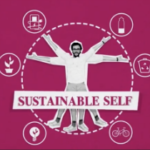 friend shared with me the series of these Huff Post videos: 2 minutes of dynamic messages that contain all you dream of: quantified data, humor, young language, fast pace, and movement. Enough information to motivate you, and simple actionable suggestions on what we can do. These videos make trying out a new habit very easy.
friend shared with me the series of these Huff Post videos: 2 minutes of dynamic messages that contain all you dream of: quantified data, humor, young language, fast pace, and movement. Enough information to motivate you, and simple actionable suggestions on what we can do. These videos make trying out a new habit very easy.
Changing habits are reversible events, though. As Richard Barrett suggests, there is a difference between change and transformation. Change is temporal, context-bound and is connected to 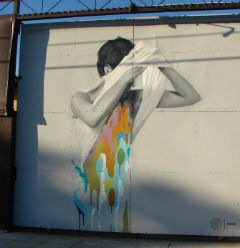 our beliefs. We change a habit like we change a shirt: when we are convinced of it, perhaps intrigued, motivated, or ready to challenge ourselves with the reprogramming of an automated behavior. Then, at any point, new information, convenience, or being in a hurry may be sufficient triggers to switch back to the previous habit. If we feel we have a good reason for it, it will not even be a problem to justify to ourselves the switching back.
our beliefs. We change a habit like we change a shirt: when we are convinced of it, perhaps intrigued, motivated, or ready to challenge ourselves with the reprogramming of an automated behavior. Then, at any point, new information, convenience, or being in a hurry may be sufficient triggers to switch back to the previous habit. If we feel we have a good reason for it, it will not even be a problem to justify to ourselves the switching back.
Transformation is different.
Transformation is an internal process, and while the triggers may be initially external, they unleash some deeper levels of consciousness. They are emotionally charged, pervade our being, and are connected to our values. Values transcend context, says Barrett. If change relates to what we do, transformation touches who we are. It affects the profound levels of our identity, and puts us face to face with our values and purpose. Transformation elicits confusion and discomfort as we are confronted with broader levels of authenticity with ourselves. We see ourselves in a new mirror, which simultaneously reflects back who we want to be and who we are. The discrepancy between these two images of self causes anxiety- but at the same time is the fuel that puts us in motion. We need to do something, we act. And while changing a habit is also an action, a transformational experience is not reversible.
identity, and puts us face to face with our values and purpose. Transformation elicits confusion and discomfort as we are confronted with broader levels of authenticity with ourselves. We see ourselves in a new mirror, which simultaneously reflects back who we want to be and who we are. The discrepancy between these two images of self causes anxiety- but at the same time is the fuel that puts us in motion. We need to do something, we act. And while changing a habit is also an action, a transformational experience is not reversible.
Transformation can be likened to the lifting of a veil, to widening the scope of our awareness, altering from there on how we see ourselves and the world. It is not a synonym of enlightenment, certainly, as it opens up more questions than answers, but as we question in a more critical way our own certainties, it allows us to uncover new dimensions of understanding self and others.
Sustainable selves are what we need.
But not just at the level of sustainable actions. Actions are the visible tip of the iceberg. Yes, it is important and urgent that we change unsustainable behaviors, don’t get me wrong. But if we put the same effort in developing the internal landscape of sustainability as we put in developing understanding of the ‘external landscape of sustainability’, the transformation can lead us all into a major evolutionary leap. Think caterpillars and butterflies.
put the same effort in developing the internal landscape of sustainability as we put in developing understanding of the ‘external landscape of sustainability’, the transformation can lead us all into a major evolutionary leap. Think caterpillars and butterflies.
And how do we tackle the internal landscape, the transformational one? Developing a sustainability mindset, addressing the three questions of our time: Who am I? (anchors of my identity). Why am I here? (purpose) and What can I do? (action). Let me leave you pondering this food for thought.
Photos: I.Rimanoczy
Sustainability Advocate, April 12, 2018, blogpost of EarthSayers.tv, Voices of Sustainability

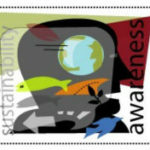
 Early in 2017 I came to the realization that the soul of sustainability lies within our interdependence or oneness or kinship. It was a
Early in 2017 I came to the realization that the soul of sustainability lies within our interdependence or oneness or kinship. It was a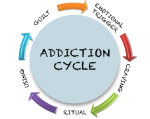 unlivable; and turning family life into a nightmare.
unlivable; and turning family life into a nightmare. 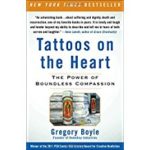 connection and thinking of it as going to the soul of sustainability works. It works for not only knowing what to do next, but having the confidence to move forward despite inexperience or feelings of being overwhelmed or to hear yourself think, it’s not my problem.
connection and thinking of it as going to the soul of sustainability works. It works for not only knowing what to do next, but having the confidence to move forward despite inexperience or feelings of being overwhelmed or to hear yourself think, it’s not my problem.